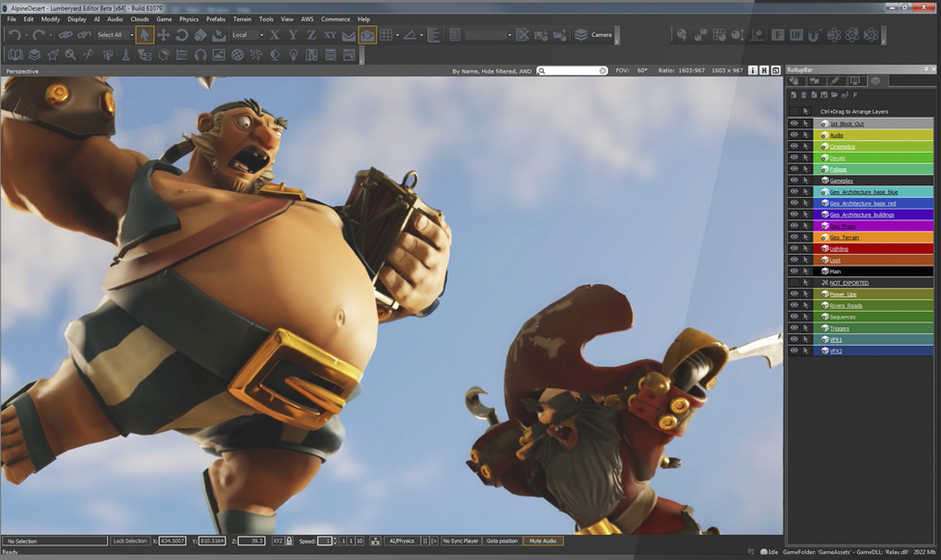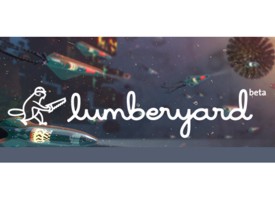| Amazon Adds Game Dev Options To AWS |
| Written by Kay Ewbank | |||
| Wednesday, 10 February 2016 | |||
|
Amazon has added two new services, Lumberyard and GameLift, to AWS for the creation of cross-platform cloud-connected games. The two combine to provide a complete game development environment that you can even use in the event of a zombie invasion.
The development environment is Amazon Lumberyard. It's free for developers, and provides a development IDE and cross-platform 3D game engine. The second service, Amazon GameLift, provides the means to deploy, operate, and scale session-based multiplayer games. You can use the services to create and run games for Windows from Vista onwards, PlayStation 4, and Xbox One. Mobile and virtual reality (VR) platforms are "coming soon", according to Amazon; support will be added for the Oculus SDK for virtual reality gaming. Lumberyard is free to use, with no seat fees, subscription fees, or requirements to share revenue, though you pay standard AWS fees for any services you use, and GameLift will have "a small per-player fee" according to Amazon. The company also says that GameLift reduces the time required to create multiplayer back-ends from thousands of hours to just minutes. According to a blog post by AWS Chief Evangelist Jeff Barr, the Lumberyard service is: "a blend of new and proven technologies from CryEngine, Double Helix, and AWS" Barr says Lumberyard has support for asset management, character creation, AI, physics and audio, You can design indoor and outdoor environments, and can make use of built-in content workflows and an asset pipeline, editing game assets in Photoshop, Maya, or 3ds Max for editing and bringing them in to the IDE afterward.
Development options include C++ and Visual Studio (including access to the AWS SDK for C++), or using Amazon's Flow Graph tool and the new Cloud Canvas to create cloud-connected gameplay features using visual scripting. The IDE has a range of editing tools, including an Asset Browser, AI Debugger, Terrain Editor, Flow Graph visual programming tool, and UI Editor. Integration with the Twitch video platform is also a feature of Lumberyard, so adding support for communication between players and the gaming community. Barr said that: "Twitch ChatPlay allows you to build games that respond to keywords in a Twitch chat stream. For example, the audience can vote to have the player take the most desired course of action. Twitch JoinIn allows a broadcaster to invite a member of the audience into to the game from within the chat channel." The final element is the Amazon GameLift back-end service. This makes use of the AWS cloud to provide automatic scaling as the number of players increases: "You simply upload your game server image to AWS and deploy the image into a fleet of EC2 instances that scales up as players connect and play. You don't need to invest in building, scaling, running, or monitoring your own fleet of servers. Instead, you pay a small fee per daily active user (DAU) and the usual EC2 On-Demand rates for the compute capacity, EBS storage and bandwidth that your users consume." One unusual aspect of the services is found in the Acceptable Use policy, which says that the services should not be used in life-critical or safety-critical systems - except if there's a zombie apocalypse: However, this restriction will not apply in the event of the occurrence (certified by the United States Centers for Disease Control or successor body) of a widespread viral infection transmitted via bites or contact with bodily fluids that causes human corpses to reanimate and seek to consume living human flesh, blood, brain or nerve tissue and is likely to result in the fall of organized civilization. Worth remembering that when the hordes are closing in.
More InformationRelated ArticlesAmazon Strengthens Data Offerings New Amazon Elasticsearch Service The New OpenGL - Vulkan and SPIR-V Mozilla Enhances Browser-Based Gaming Valve Shares DirectX to OpenGL Code Learning 2D Game Development with Unity Mozilla's PlayCanvas Open Sourced
To be informed about new articles on I Programmer, sign up for our weekly newsletter,subscribe to the RSS feed and follow us on, Twitter, Facebook, Google+ or Linkedin.
Comments
or email your comment to: comments@i-programmer.info |
|||
| Last Updated ( Wednesday, 10 February 2016 ) |



